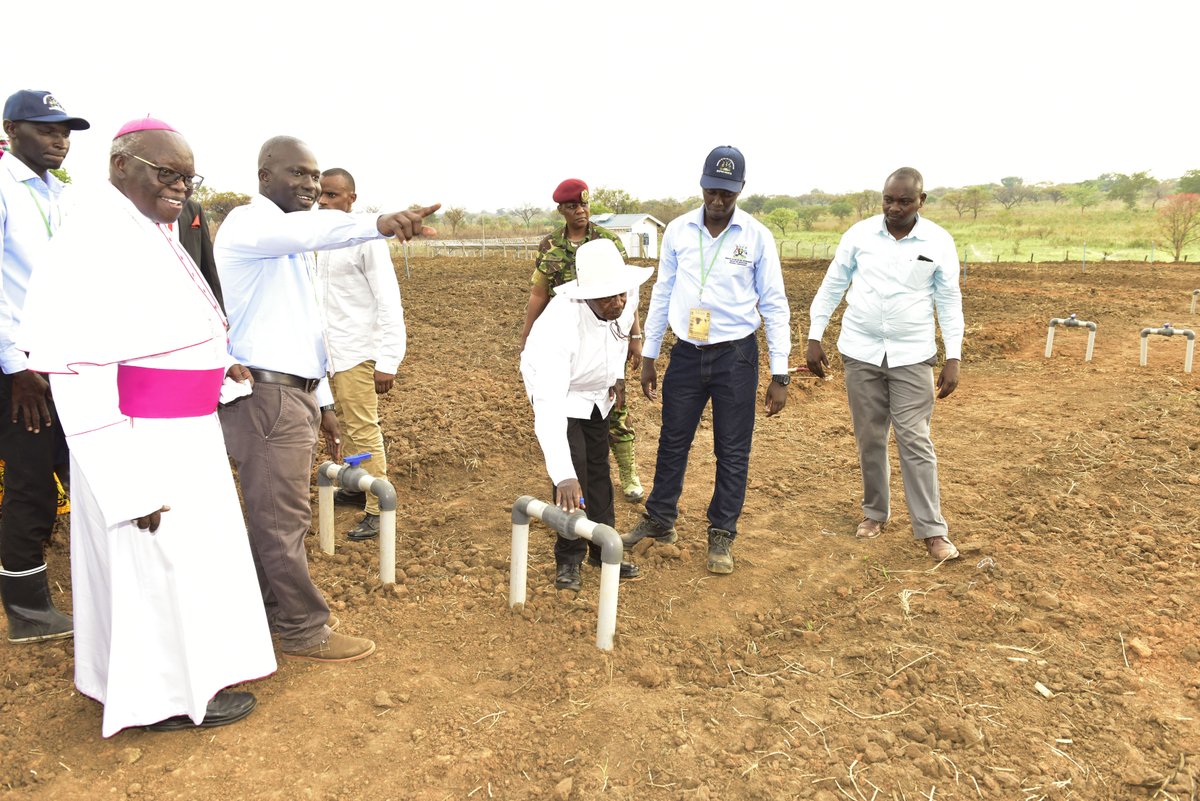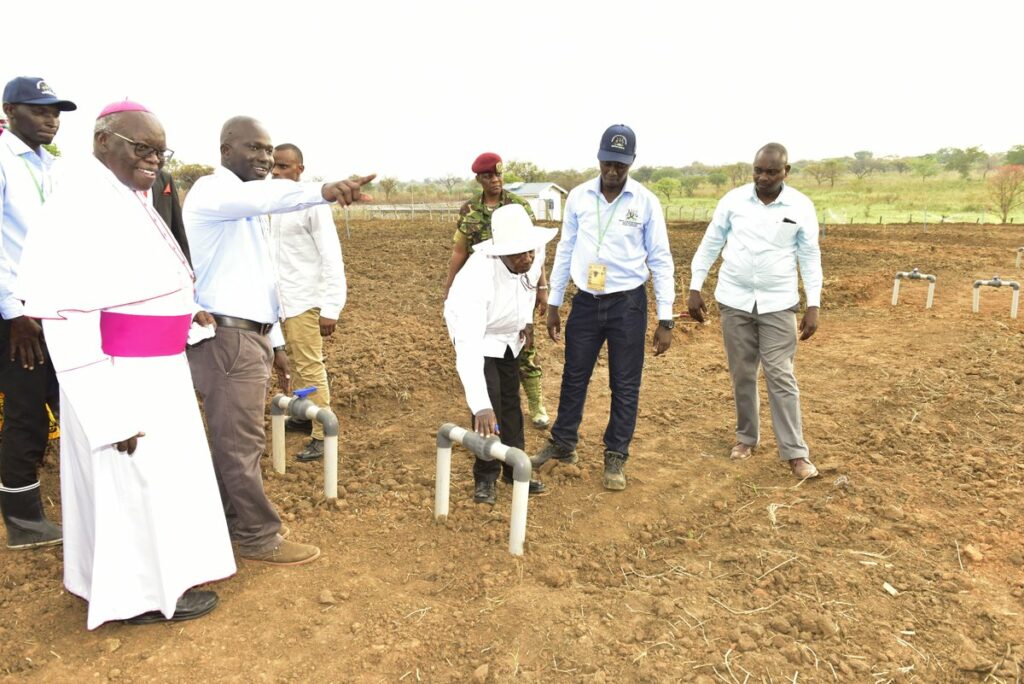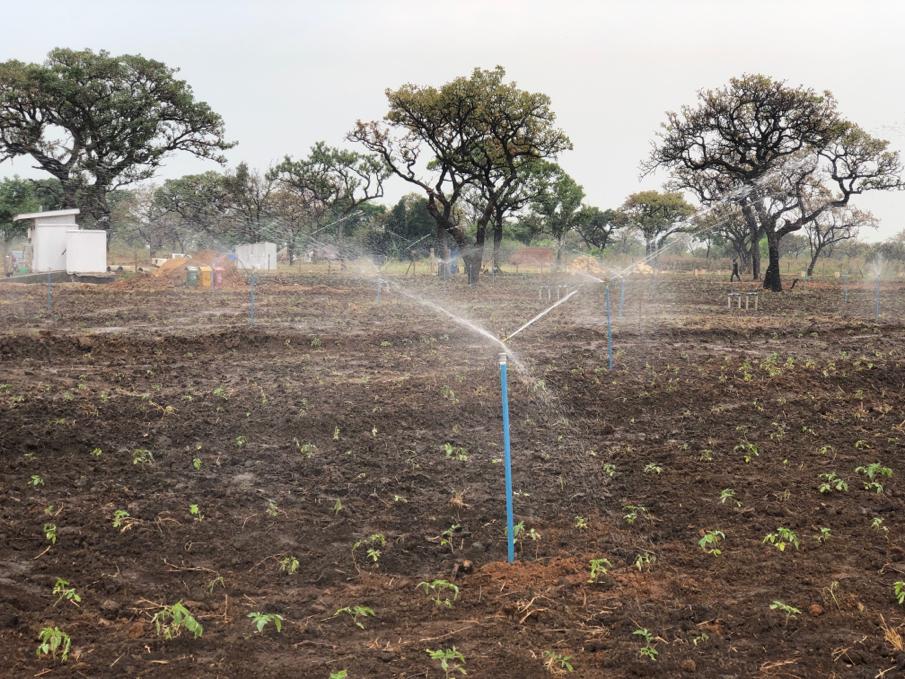
 Rapa FM Pader
Rapa FM Pader

 Rapa FM Pader
Rapa FM Pader
7 April 2024, 12:35
By Lakomekec Kinyera & James Patrick Odongo

Amidst mounting challenges posed by climate change, farmers in Pader district are embracing modern irrigation practices to fortify agricultural productivity and economic stability. Mr. Adolatona Seydou Opoka, the district’s agricultural officer, has been a vocal advocate for the adoption of irrigation techniques, particularly in horticulture.
Highlighting the exacerbated challenges of erratic rainfall and water scarcity, Mr. Opoka stressed the urgent need for farmers to integrate sustainable farming methods to enhance yields, especially in vulnerable crops like tomatoes.
“The majority of farmers are facing reduced yields in horticulture due to inadequate water supply exacerbated by climate change,” Mr. Opoka emphasized during a recent interview. His call to action coincides with the launch of the Micro-Scale Irrigation Program by the Pader district production department.

This initiative aims to mitigate the adverse effects of climate change by providing substantial subsidies on solar-powered irrigation systems.
“We provide a 75% subsidy on solar-powered machines, with farmers contributing the remaining 25%,” Mr. Opoka explained. These systems, capable of irrigating up to 2.5 acres per day, represent a significant investment in enhancing agricultural sustainability across the district. Despite the program’s potential, progress has been hampered by financial constraints among participants.
“Only 5 farmers have managed to clear the down payment required for the commitment to the program. We urge others to expedite their payments to fully benefit from this initiative,” Mr. Opoka urged, highlighting the critical need for broader financial support to realize the program’s objectives.
Mr. Quinto Komakech Opio, a progressive farmer from Pagwari West village, exemplifies the program’s success. By embracing irrigation, Mr. Opio diversified his crops to include tomatoes, carrots, and eggplants, significantly increasing productivity and ensuring consistent yields throughout the year.
“Adopting irrigation techniques has not only boosted my farm’s productivity but has also enhanced resilience against unpredictable weather patterns exacerbated by climate change,” Mr. Opio reflected, underscoring the transformative impact on his family’s well-being.
However, challenges persist, as articulated by Ketty Lamaro from Pacabol village in Agago district. Lamaro emphasized the economic potential of horticulture but stressed the need to address obstacles like inadequate irrigation infrastructure and market barriers for sustained growth.
“Access to reliable irrigation is crucial for ensuring year-round production of high-value crops and for mitigating the impacts of climate change,” Lamaro noted, emphasizing the urgent need for strategic investments in agricultural infrastructure.
In response to these challenges, Mr. Opoka reaffirmed the district’s commitment to supporting sustainable agricultural practices. “With proper irrigation and support systems in place, farmers can enhance productivity, ensuring food security and economic resilience in our region,” Mr. Opoka concluded.
As Pader district continues its efforts to promote agricultural sustainability, Opoka says stakeholders remain optimistic that targeted interventions will empower local farmers to capitalize on horticulture’s economic potential, thereby fostering sustainable development and improving livelihoods across northern Uganda.